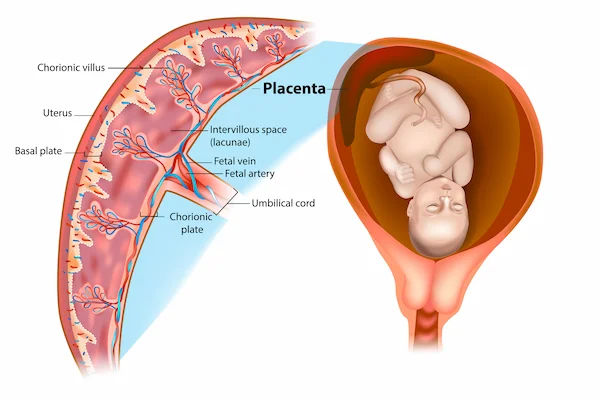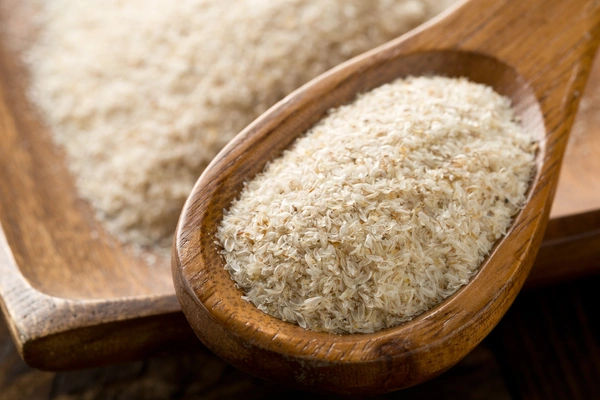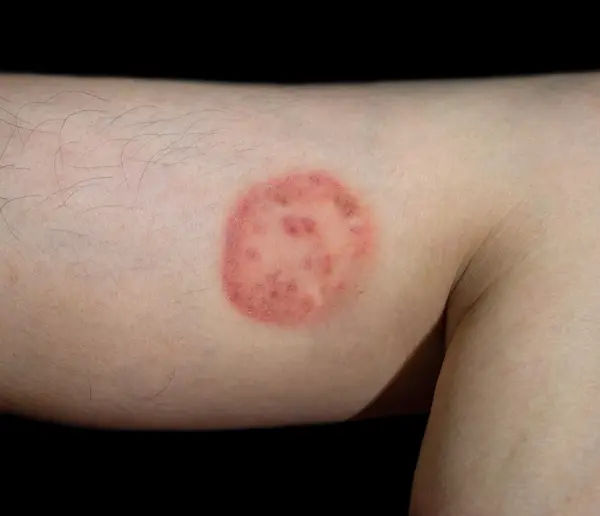Guide to Facial Swelling Reasons
Learn the common causes of facial swelling, from allergies and infections to dental or systemic conditions. Discover key symptoms, red flags, home remedies, and when to seek urgent medical help.


Introduction
Waking up with a puffy face or noticing one cheek suddenly balloon can be unsettling. Facial swelling can stem from many reasons—from a mild allergic reaction or sinus infection to a dental abscess or, rarely, a medical emergency. The good news is that most facial swelling has a clear cause and improves with the right steps.
This guide breaks down the most common reasons for facial swelling in plain language, shows how to spot red flags, and explains what to try at home versus when to get professional help. You’ll learn how the location of swelling (lips, eyelids, cheeks, jaw) and its timing (sudden vs gradual, one-sided vs both sides) can point to the cause. We’ll cover allergies, infections, dental issues, injuries, medication effects, and salivary gland problems—plus practical examples,
prevention tips, and a quick decision guide.
If symptoms persist beyond two weeks, consult a doctor online with Apollo 24|7 for further evaluation.
Consult a Top General Practitioner for Personalised Advice
What Counts as Facial Swelling?
Understanding what facial swelling means helps you identify whether it’s harmless or needs medical review.
What It Is
Facial swelling refers to fluid accumulation or inflammation in the tissues of the face. It can feel puffy, tight, tender,
warm, or even itchy, depending on the cause.
Patterns Matter
- Sudden vs gradual: Sudden swelling of lips or eyelids often suggests allergy or angioedema, while gradual, persistent
puffiness may point to sinus congestion, hypothyroidism, or fluid retention. - One-sided vs both sides: One-sided swelling is often due to dental infection, salivary gland issues, or sinusitis; both sides suggest allergies or systemic causes.
- Pain, redness, warmth: Indicates possible infection such as cellulitis or abscess.
- Itch, hives, or tingling: Suggests allergy or contact dermatitis.
Location Clues
- Eyelids/around eyes: Allergies, sinusitis, or cellulitis.
- Cheeks/jaw: Sinusitis, dental abscess, or salivary gland issues.
- Lips/tongue: Angioedema with potential airway risk.
Unique insight: Think “TILT”—Timing, Inflammation, Laterality, and Territory—to narrow down the likely cause.
When Is Facial Swelling an Emergency?
Some symptoms accompanying facial swelling need immediate attention.
Seek urgent help if you have:
- Trouble breathing, hoarse voice, or swelling of tongue/lips causing drooling or swallowing difficulty.
- Severe eye pain, bulging eye, reduced vision, or inability to move the eye.
- Rapidly spreading redness, high fever, or severe facial pain.
- Recent trauma with deformity, vision changes, or severe headache.
If you have an adrenaline (epinephrine) injector for allergies, use it immediately if breathing or swallowing is affected.
Reasons at a Glance: A Quick Map
Facial swelling can stem from allergic, infectious, traumatic, or systemic causes.
- Allergic and immunologic: Hives, angioedema, or contact dermatitis.
- Infectious and dental: Sinusitis, cellulitis, or dental abscess.
- Injury and bites: Trauma, cosmetic procedures, or insect stings.
- Salivary gland problems: Stones or parotitis.
- Systemic or medication effects: Thyroid, kidney, heart issues, or certain drugs.
Unique insight: Timing with meals, sleep, or seasonal exposure can reveal the likely cause.
Allergies and Angioedema: The Fast Swellers
Allergic reactions often cause rapid-onset facial swelling within minutes or hours.
Common Causes
Foods, medicines, insect stings, latex, or new skincare products. Hives often appear with swelling.
ACE Inhibitor Angioedema
Blood pressure medicines like enalapril and lisinopril can cause painless swelling of the lips, tongue, or face even years
after starting. Seek urgent help if breathing or swallowing is affected.
What Helps
- Mild: Non-drowsy antihistamines and cold compresses.
- Severe: Adrenaline injection and emergency care.
- Recurrent: Keep a trigger diary and discuss preventive plans with an allergist.
Infections and Dental Issues: The Sore, Hot, and Spreading Swell
Infections are common causes of painful, red, or warm facial swelling.
Sinusitis
Facial pain, pressure, nasal congestion, and swelling around the eyes or cheeks. Viral cases often improve on their own;
bacterial sinusitis may need antibiotics.
Cellulitis and Abscess
Warm, red, tender skin that spreads quickly suggests cellulitis. Abscesses may feel soft or fluctuant. Seek urgent care if
fever or rapidly expanding redness occurs.
Dental Infections
Throbbing tooth pain, cheek swelling, or bad taste indicate a possible dental abscess—requires drainage and antibiotics.
Case example: A painful cheek with fever and a bad tooth likely signals a dental abscess.
Injuries and Procedures: Swelling After Impact or Treatment
Trauma and cosmetic treatments often cause temporary swelling but need monitoring for complications.
Trauma
Apply cold compresses for the first 48 hours, elevate the head, and rest. Seek care for vision changes, persistent pain, or
deformity.
Insect Bites
Localised redness and swelling improve with antihistamines and cold compresses. Systemic symptoms need urgent care.
Cosmetic Procedures
Temporary swelling is normal. Watch for dark patches, spreading redness, or severe pain, which could mean infection
or vascular compromise.
Systemic and Medication Reasons: The Whole-Body Links
Sometimes facial swelling reflects an underlying thyroid, kidney, or medication-related issue.
Thyroid Disorders
Hypothyroidism can cause a pale, puffy face (myxoedema) that improves with thyroid hormone treatment.
Kidney or Heart Problems
Morning puffiness that improves through the day may signal fluid retention. Medical evaluation and lab tests are
needed.
Medication Effects
Steroids, NSAIDs, calcium channel blockers, and ACE inhibitors can cause swelling. Discuss alternatives with your
doctor.
Salivary Gland Problems: Swelling with Meals
Salivary stones or infections cause swelling that worsens during eating.
Salivary Stones (Sialolithiasis)
Painful one-sided swelling that flares with meals. Hydration, warm compresses, and sour sweets can help.
Parotitis
Viral (e.g., mumps) or bacterial infection of the parotid gland causes pain, fever, and swelling.
Autoimmune Causes
Recurrent, non-tender swelling with dry eyes and mouth may indicate Sjögren’s syndrome.
How Doctors Find the Reason: Tests and Timelines
Diagnosis depends on history, physical examination, and selected investigations.
History and Examination
Doctors assess timing, triggers, and related symptoms like fever, itch, or tooth pain.
Imaging and Lab Tests
- Imaging: Ultrasound or CT for abscesses, stones, or sinus disease.
- Blood tests: Infection markers, thyroid and kidney panels, and autoimmune screening.
- Dental X-rays: For abscesses or jaw involvement.
Tip: Bring a medication list and symptom photos to your appointment.
What You Can Do at Home—Safely
Simple steps can ease swelling and discomfort while you monitor for changes.
Compresses
- Cold: For allergies, bites, or fresh injuries.
- Warm: For sinus congestion or salivary stones after the acute phase.
Over-the-Counter Help
Antihistamines, mild pain relief, and saline nasal rinses may help.
Oral Care
Maintain hygiene and elevate your head when sleeping. Avoid squeezing swollen areas or using heat early on.
Prevention and Long-Term Care
Healthy habits and awareness reduce your chances of recurrent facial swelling.
- Patch test new products and use fragrance-free skincare.
- Maintain oral and sinus health with regular care.
- Manage chronic conditions like thyroid or kidney issues.
- Keep an allergy trigger diary and carry an adrenaline injector if needed.
Special Situations: Children, Pregnancy, and Older Adults
Certain groups experience facial swelling differently due to physiological or medication factors.
Children
Commonly linked to infections or dental issues. Watch for eye involvement in eyelid swelling.
Pregnancy
Mild puffiness can be normal, but sudden swelling with headaches or vision changes may signal preeclampsia—seek
urgent care.
Older Adults
Medication-induced swelling is more frequent; review prescriptions regularly.
Myths and Facts About Facial Swelling
Not all facial swelling needs antibiotics or heat therapy—knowing the truth helps avoid mistakes.
- Antibiotics only help bacterial infections.
- Ice, not heat, is best for fresh injuries.
- One-sided swelling can still be allergic.
- ACE inhibitor swelling is serious and needs urgent attention.
- “Natural” remedies can also trigger allergic reactions.
Conclusion
Facial swelling is a symptom, not a diagnosis. It can arise from allergies, infections, dental problems, trauma, or
systemic conditions. Track when and where it appears, and note pain, itch, or redness to help identify the cause.
Start with safe home measures such as cold or warm compresses, antihistamines, and saline rinses. Seek urgent help for breathing issues or severe pain. If swelling persists, a clinician can help determine the reason and treatment. Apollo 24|7 also offers home collection for tests like CBC, CRP, and thyroid panels for convenient follow-up.
Consult a Top General Practitioner for Personalised Advice
Consult a Top General Practitioner for Personalised Advice

Dr. Mainak Baksi
General Practitioner
13 Years • MBBS , MD (MPH)
Howrah
Mainak Baksi Clinic, Howrah
(50+ Patients)

Dr. Rajib Ghose
General Physician/ Internal Medicine Specialist
25 Years • MBBS
East Midnapore
VIVEKANANDA SEBA SADAN, East Midnapore

Dr. Thorana Prakash M
General Physician
2 Years • MBBS
Bengaluru
PRESTIGE SHANTHINIKETAN - SOCIETY CLINIC, Bengaluru

Dr. Tapabrata Ray
General Physician/ Internal Medicine Specialist
4 Years • MBBS,DGM,CPMeC,ACMDC
Kolkata
MCR SUPER SPECIALITY POLY CLINIC & PATHOLOGY, Kolkata

Dr. Sougata Kumar
General Practitioner
8 Years • MBBS
East Midnapore
VIVEKANANDA SEBA SADAN, East Midnapore
Consult a Top General Practitioner for Personalised Advice

Dr. Mainak Baksi
General Practitioner
13 Years • MBBS , MD (MPH)
Howrah
Mainak Baksi Clinic, Howrah
(50+ Patients)

Dr. Rajib Ghose
General Physician/ Internal Medicine Specialist
25 Years • MBBS
East Midnapore
VIVEKANANDA SEBA SADAN, East Midnapore

Dr. Thorana Prakash M
General Physician
2 Years • MBBS
Bengaluru
PRESTIGE SHANTHINIKETAN - SOCIETY CLINIC, Bengaluru

Dr. Tapabrata Ray
General Physician/ Internal Medicine Specialist
4 Years • MBBS,DGM,CPMeC,ACMDC
Kolkata
MCR SUPER SPECIALITY POLY CLINIC & PATHOLOGY, Kolkata

Dr. Sougata Kumar
General Practitioner
8 Years • MBBS
East Midnapore
VIVEKANANDA SEBA SADAN, East Midnapore
More articles from General Medical Consultation
Frequently Asked Questions
Q1: What are the most common reasons for one-sided facial swelling?
Dental abscess, sinusitis, salivary gland stone, or cellulitis. Pain, fever, or meal-time pain help differentiate the causes.
Q2: How can I reduce facial swelling quickly at home?
Cold compresses and antihistamines for allergies; warm compresses and saline rinses for sinus causes; ice and rest for injuries.
Q3: When should I worry about facial swelling during pregnancy?
Seek immediate care if swelling is sudden or associated with headaches, vision changes, or high blood pressure.
Q4: Can blood pressure medicines cause facial swelling?
Yes—ACE inhibitors can trigger angioedema even long after starting the medication. This can be life-threatening if the airway is involved.
Q5: What tests diagnose the reason for facial swelling?
Blood tests (CBC, CRP, thyroid, kidney), allergy testing, dental X-rays, or scans such as ultrasound or CT. Apollo 24|7 offers home collection for many of these.



_0.webp)
